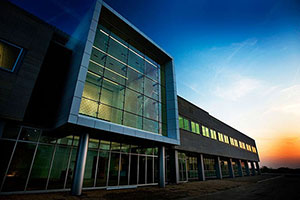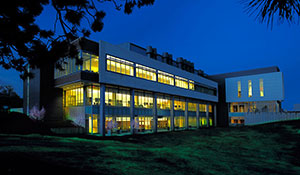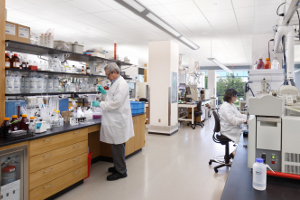Since 1904, the State Hygienic Laboratory has been at the forefront of public health issues in Iowa. As the state’s public health and environmental laboratory, the Hygienic Laboratory serves all of Iowa’s 99 counties through disease detection, environmental monitoring, and newborn and maternal screening.
In its early years, the Hygienic Laboratory tested for typhoid, diphtheria, rabies and tuberculosis. Today, the Laboratory also quickly responds to other infectious disease threats, including mumps, whooping cough, salmonella and global threats such as HIV and tuberculosis. The Lab’s mission has also expanded to address bioterrorism and chemical terrorism response and readiness.
An Environmental Protection Agency-certified facility, the Hygienic Laboratory conducts testing of drinking water as mandated by the Safe Drinking Water Act. The staff also works with the Iowa Department of Natural Resources to monitor waterways throughout the state for contaminants and to assess air quality in real-time and through lab testing.
The Hygienic Laboratory provides potentially life-saving newborn screening for every child born in Iowa as the laboratory designated by the State of Iowa Department of Health and Human Services through the Center for Congenital and Inherited Disorders. This highly specialized screening also is provided for babies born in Alaska, North Dakota, and South Dakota.
The State Hygienic Laboratory’s main facilities are headquartered on the University of Iowa's Research Park campus northwest of Iowa City in Coralville. Additional testing facilities are part of the Iowa Laboratory Facilities in Ankeny, a Des Moines suburb. Through a collaborative agreement between Lakeside Laboratory in Iowa’s Great Lakes Region, we expanded water quality monitoring and testing during 2008 to the northwestern part of the state.






